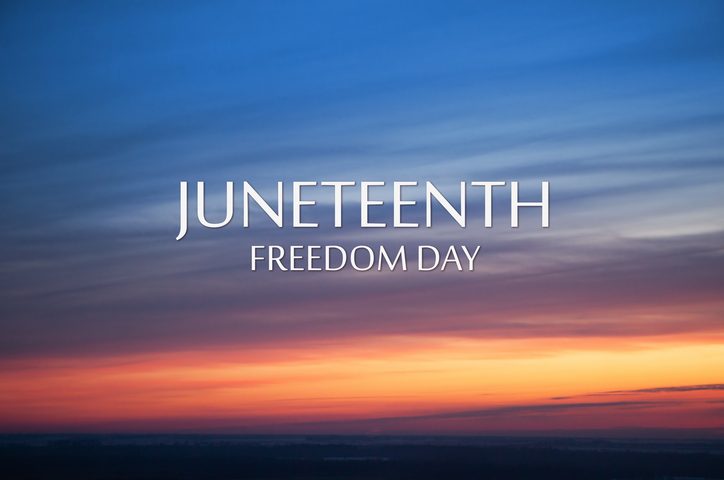
Universal Impact of Motherhood Should Be Celebrated
May 10, 2024
Power of Words to Bring About Change
July 12, 2024Juneteenth As A National Holiday
What does it really mean that Congress has declared Juneteenth as a National Holiday? Will most Americans pause to recognize or celebrate it?
In June 2021, the United States Congress with a unanimous vote in the Senate and a near-unanimous vote in the House of Representatives (14 Republicans voted No) passed legislation designating June 19th as Juneteenth National Independence Day, commemorating the end of slavery for Black Americans.
But what does Juneteenth as a national holiday really mean?
In the years to come, will it be embraced and celebrated all across America to help encourage shared experiences and achieve better understanding among Blacks and whites?
A historical context sheds some light.
Juneteenth, also known as Jubilee Day, Emancipation Day, Freedom Day, and Black Independence Day was first celebrated by freed slaves on June 19, 1866, in Texas a year after slavery had ended there. President Abraham Lincoln had signed the Emancipation Proclamation, ending slavery in January of 1863—two and half years earlier.
But designating Juneteenth as a national holiday at that time was inconceivable.
It wasn’t until 1980 that the holiday was officially recognized anywhere. Texas became the first state to designate Juneteenth as a state holiday. In 2002, eight other states joined Texas. In 2008, fifteen more states.
By 2019, 47 states and the District of Columbia had finally recognized or commemorated the day in some way. Between 2020 and 2022, five states (Texas, New York, Virginia, Washington, and Illinois) made it a paid holiday for state employees.
But Juneteenth as a national holiday remained elusive, just as many of the rights and privileges extended to all Americans.
For more than a century and half between 1866 and 2022, Juneteenth has primarily been a celebration confined to Black communities all across America.

Juneteenth As A National Holiday
(Photo by Milana Pavlova/iStock Images)
With the declaration of Juneteenth as a national holiday, will that trend change?
There are many ways that the national holiday can take on meaning for those of us who are just becoming familiar or for one reason or the other have not given the meaning of the day much attention in the past.
Among them, we can:
- commit to moving forward with open-mindedness and a willingness to learn anew about the things that we as human beings share
- make a conscious effort to get to know better Blacks that we regularly encounter in the workplace, social venues, and communities in which we live
- question why Blacks are not a part of some aspect of our lives
- read a book about Black history and culture to better understand how it fits into the American experience
- attend a Black parade, street fair, a theatrical production
- patronize Black businesses
- have a meal in a Black restaurant
- get to better know a Black neighbor, a colleague, classmate
- incorporate music of Black artists in our favorite genres
- visit museums of African American history and culture
- examine the reasons why we may hold racial stereotypes
These are just some of the things we can do to recognize and celebrate Juneteenth as a national holiday and give it lasting meaning.
Each of us can take a few minutes to decide what it means and will mean to us and those within our orbit of influence.
There are so many ways to make it more than just a Black holiday.
The real questions: Will most of America pause to celebrate Juneteenth as a national holiday in the years to come—embrace it as an opportunity to better understand its importance and significance not only in terms of the history of this country, but in promoting healing and building a better future in all facets of our everyday lives?
Portions of this article originally appeared in the Missouri Independent





